IASC2019 will be chaired by prof. Juan Camilo Cárdenas of the Universidad de Los Andes and prof. Deborah Delgado Pugley of PUCP. They will be supported by the General Organizing Committee and the Advisory Board. The Support Staff, in cooperation with the IASC Secretariat, will take care of the practical details of the conference.
Conference Chairs
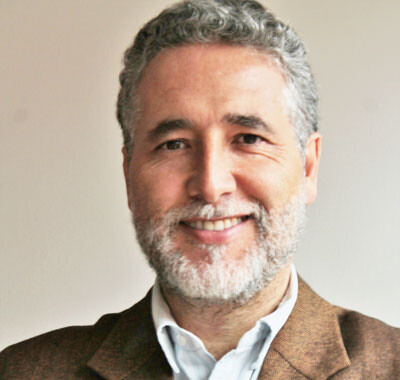 |
Juan Camilo Cárdenas, Conference ChairJuan Camilo Cárdenas is a Professor of Economics at the Universidad de Los Andes in Colombia. His work focuses on the analysis and design of institutions (rules of the game) that promote cooperation among individuals, and the solution of social dilemmas in the fairest, efficient, equitable, democratic and sustainable manner possible. |
 |
Deborah Delgado Pugley, Conference Co-ChairDeborah Delgado Pugley is a Professor and Researcher of Sociology at PUCP. Her research focuses on global environmental politics, sustainable development policies and environmental issues at the community level. Recent projects include the impact assessment of oil spills in Amazonian communities and local universities’ involvement in climate policies. |
General Organizing Committee
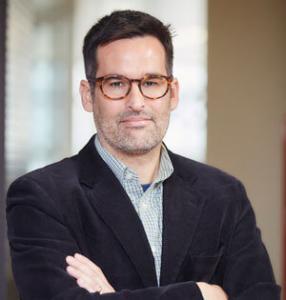 |
Jose-Carlos Silva-MacherProfessor at the Department of Economics of the Pontificia Universidad Católica del Perú (PUCP) and founder of the Economics and Environmental Management career at the Universidad Jesuita Antonio Ruiz de Montoya (UARM). Worked for several international companies and as consultant Peruvian government. Specialist in Environment, Health, and Safety Due Diligence audits. |
 |
John PowellJohn is a senior research fellow at the Countryside and Community Research Centre of Gloucestershire University. He is an institutional economist with expertise in natural resources management, commons governance, environmental valuation, and policy and program evaluation. |
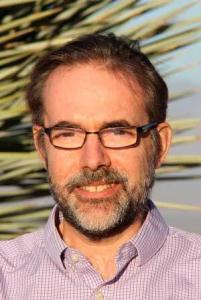 |
Marco A. JanssenMarco Janssen is a Professor in the School of Sustainability and Director of the Center for Behavior, Institutions and the Environment, both at Arizona State University, USA. Janssen is also the President-Elect of the IASC. His research focuses on the resilience and governance of common resources from groundwater in rural India to lakes in Wisconsin, USA. |
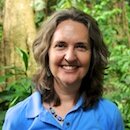 |
Anne LarsonAnne Larson is a Principal Scientist at the Center for International Forestry Research (CIFOR), based in Lima, Peru. Her current research priorities include opportunities for and challenges to forest tenure reforms; women’s rights to land in communal forests; and multilevel governance, REDD+, and low emissions development. |
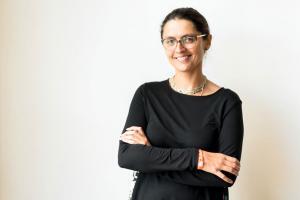 |
Maria Alejandra VelezMaria Alejandra Vélez is an Associate Professor at the School of Management, Universidad de Los Andes, Bogotá, Colombia. Recently she is studying the effect of payment of environmental services on conservation outcomes and the impacts of collective property-rights regimes on institutional changes, landscape, and welfare of Afro-Colombian communities on the Pacific Coast. |
 |
Ivan D. LoboIvan D. Lobo, former Lecturer at University of Los Andes School of Management (Bogota, Colombia), PhD-candidate in Political Ecology at University College London, focuses on the political economy of social and environmental conflict, especially on the interplay between community leadership, the development of productive entrepreneurial initiatives and community governance in the Pacific region of Colombia. |
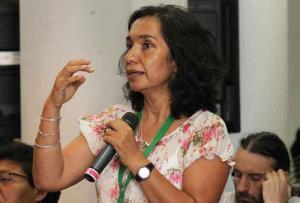 |
Leticia MerinoSince 1995 she is a researcher and teacher at the UNAM, and in 2016, she was appointed as the coordinator of the University Seminar on Society, Environment, and Institutions. She is a member of the academic institution of the Social Research Institute and member of the Committee of Policies of Development of the United Nations (since 2016). |
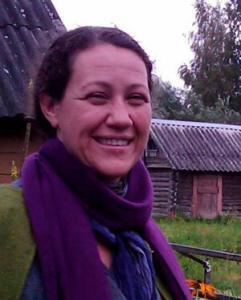 |
Katharine N. FarrellKatharine N. Farrell, Ph.D., is an ecological economist and political theorist whose work focuses on the political economy of knowledge in environmental governance. She is currently affiliated with universities in Germany and Spain and is a visiting professor with Universidad del Magdalena (Colombia) with the SMART University Initiative. |
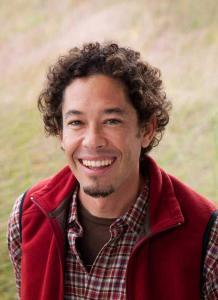 |
Xavier Basurto (Duke University)Xavier is an Associate Professor of Sustainability Science at the Nicholas School of the Environment at Duke University. He focuses on the politics of collective action and self-governance, and the interaction of politics with the biophysical environment. His work also examines the relationships between institutional diversity and environmental variability in the context of inshore fishing commons. |
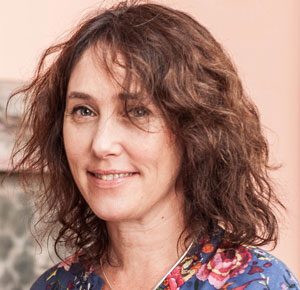 |
Gabriela Lichtenstein (CONICET) (INAPLDr. Gabriela Lichtenstein is Regional IASC Coordinator for Latin America and IUCN´s Regional Vice-Chair for Meso and South America. Since 2001 she has been working as an Independent Researcher at the National Research Council (CONICET) Argentina based at the National Institute for Anthropology and Latin American Thought (INAPL). |
 | Patricia Ruiz BravoDean of Faculty of Social Sciences, Pontifical Catholic University of Peru (PUCP). Patricia Ruiz Bravo obtained her Ph.D. in Social Sciences from the University of Leuven, Belgium. Her research specialties are gender, education, and development issues. She is a specialized consultant in the Evaluation of rural development projects and gender. |
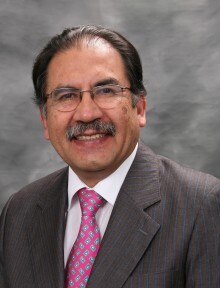 | Ismael MuñozCoordinator Department of Economics, PUCP. Researcher in development issues, political economy, collective action, natural resources, poverty, and social policies. Professor at the Department of Economics and a member of the Board of Directors of the School of Government and Public Policies of the PUCP. |
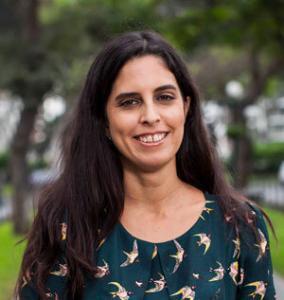 | Mariana AlegreSpecialist Sustainable Cities, Faculty of Management, PUCP. Mariana Alegre is the General Coordinator of the citizen observatory Lima Como Vamos (www.limacomovamos.org) that seeks to improve the quality of life of the people of Lima and promote the strategy Occupy Your Street that seeks to recover and generate more Public spaces. |
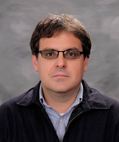 | Jorge AragónCoordinator of Political Science Studies and expert on quantitative research methods, PUCP. Doctor in Political Science from the University of Florida. Research Professor in the Specialty of Political Science and Government, Faculty of Social Sciences, Pontificia Universidad Católica del Perú. Researcher Affiliated to the Institute of Peruvian Studies. |
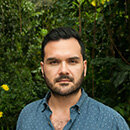 | Juan Pablo Sarmiento
|
IASC Secretariat
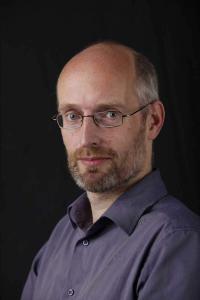 |
René van WeerenRené van Weeren is Executive Director of the IASC and as Education and Research Support Officer at the Department of History and Art History of Utrecht University (Netherlands). The IASC Secretariat is hosted by Utrecht University since 2017. René formed part of the organizational team of IASC2017 in Utrecht (Netherlands). |
Support Staff
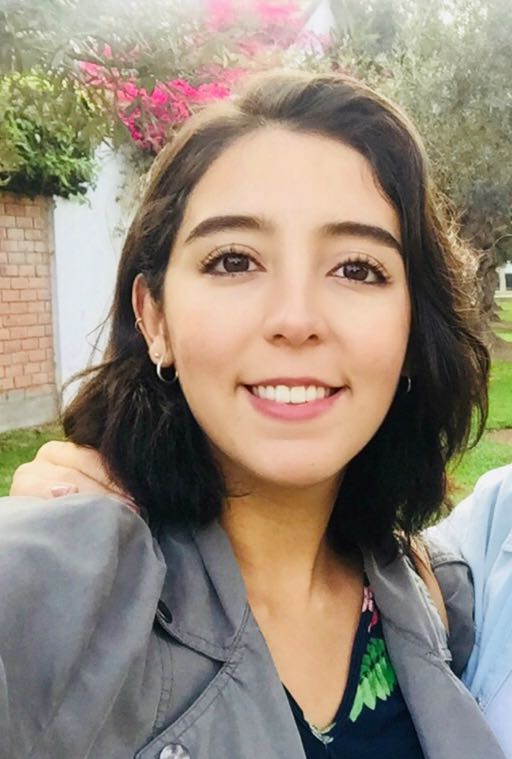 |
Valentina Berardinelli GarzónValentina Berardinelli Garzón received her anthropology degree at the Universidad Nacional de Colombia. She is now a candidate for an MA degree in Human Development at Pontificia Universidad Catolica del Peru. Her research focuses on policymaking about indigenous social movements and natural resources management in extractive contexts. She speaks Spanish (native) and English. |
 |
Dayan GhuysDayan Ghuys is a Master student at the Université Catholique de Louvain (UCL) (Belgium) in Population and Development Studies. She obtained a university bachelor’s degree in Information and Communication Studies (included a university exchange of 6 months in Spain). She speaks French (native), English, Spanish, a little bit of Dutch and Japanese. |
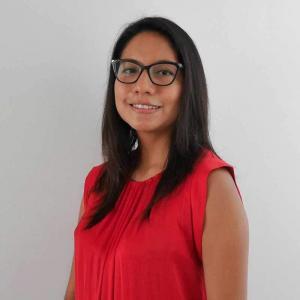 |
Tania Ramírez FaríasTania Ramírez Farías is a sociologist. She is currently studying for a Master’s in Environmental Development at the Pontifical Catholic University of Peru. Her research areas of interest are extractive industries, social movements, environmental politics, and environmental expertise. |
 |
Diego OrmeñoDiego Ormeño Alvarado is a student of Communication for Development of the Faculty of Sciences and Arts of Communication at the Pontifical Catholic University of Peru. He has experience in the diagnosis, design and evaluation of development projects with a communicational focus. He has analyzed the situation of various projects related to leaders of grassroots organizations and the scarcity of water in northern Peru. |

